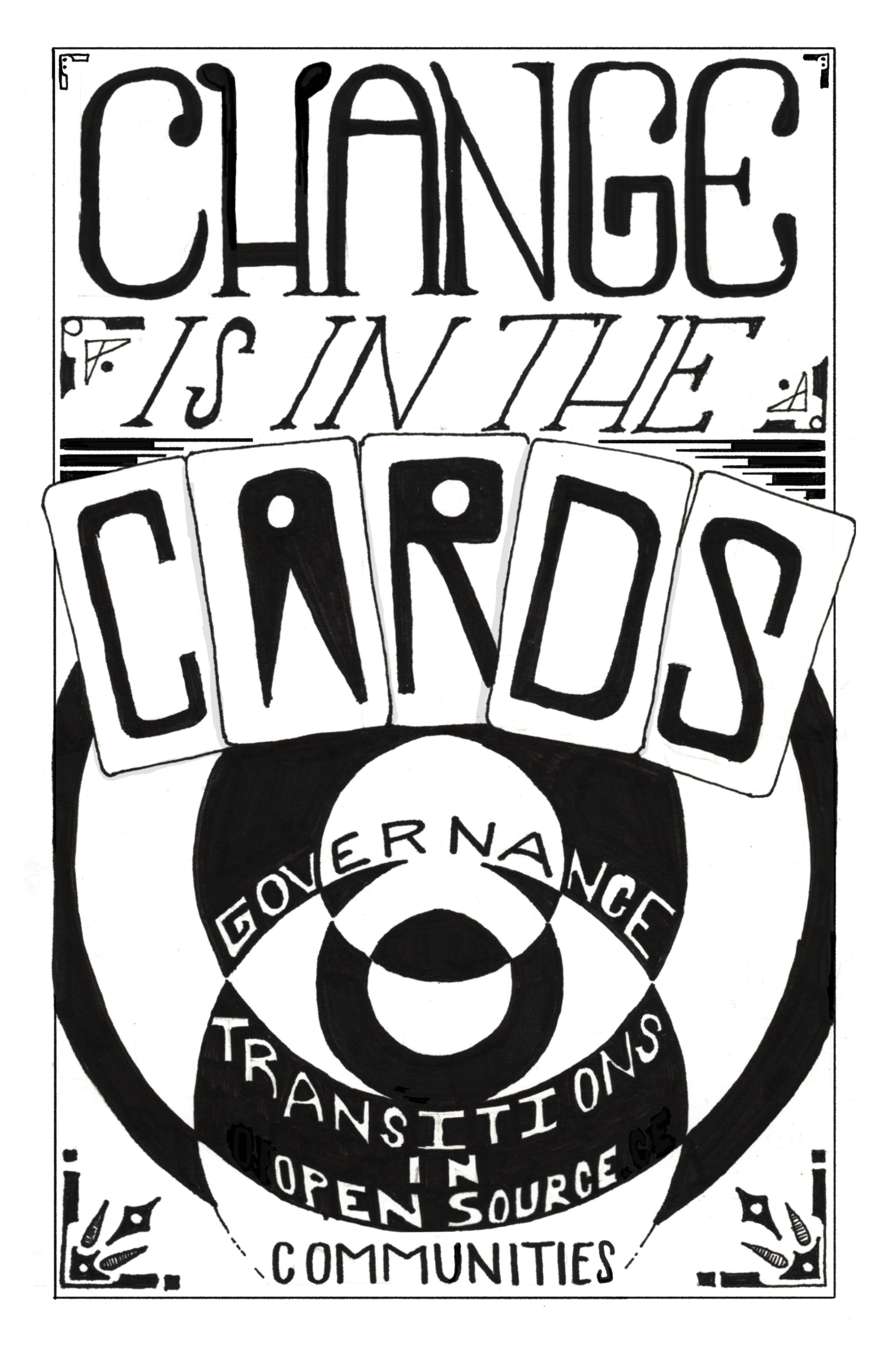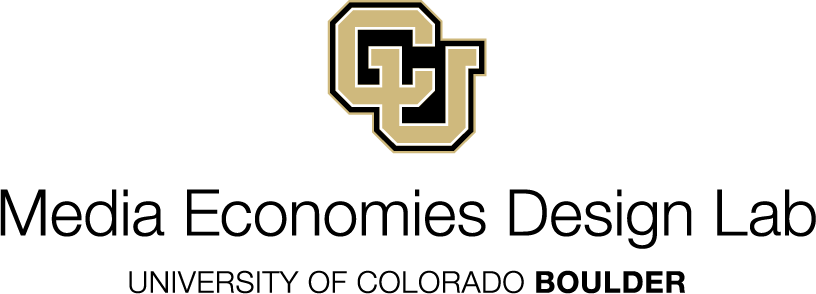Get Our Latest Zine, on Open Source Governance: "Change Is In the Cards"
 While supplies last, get the newest MEDLab zine, a tarot-infused exploration of governance transitions in open-source software communities. A free online copy will be available for all.
While supplies last, get the newest MEDLab zine, a tarot-infused exploration of governance transitions in open-source software communities. A free online copy will be available for all.
We invited practitioners from various open-source communities to use the tarot as a tool for sense-making about governance transitions they have witnessed or participated in. We consulted the tarot, pulling cards for each contributor and encouraging them to interpret these cards as they may— conjuring wisdom about community governance, especially in moments of liminality and transition.
Making open-source software is a way of collectively speaking new possibilities into existence. Programming and community-building both are forms of practical magic: the writing and implementation of codes, spells, or “magic words” that do things in the world. Governance is the stewardship or oversight of these processes. By demystifying certain aspects of it (and mystifying others!), we can help communities operate more effectively and democratically.
Our hope is that this zine will be an open-ended starting point—a forkable resource—that can help others navigate growth, transition, and all kinds of impasse, in software development and far beyond.
Request a free print copy. Join the release event at the Metagov Seminar on November 13.
How Has Structural Racism Held Back the Co-op Movement?
 November 4, 2024
November 4, 2024
10 - 11 a.m., Mountain Time
Free webinar
Despite extensive study of co-operatives' real and imagined benefits, we know little about the conditions under which they achieve the lasting scale needed to be a viable alternative and transform the economy. Under what conditions can co-operatives achieve such scale?
A new book by Jason Spicer suggests one essential answer: The cause of co-operatives' comparative weakness in the United States is identified as reflecting the joint effect of economic liberalism and structural racism. Only in the United States did the co-operative face, in its initial development, two well-entrenched incumbents operating with competing ownership models: the investor-owned firm and the race-based chattel slavery system of ownership of people.
In this discussion, Spicer will share his findings, followed by a response from Jessica Gordon Nembhard and a Q&A with attendees.
Learn more and register here. This event is organized by MEDLab community fellow Danny Spitzberg.
Democratizing AI Companies
With the team from the Collective Intelligence Project, a leading think-tank for bringing democratic inputs to AI, MEDLab director Nathan Schneider wrote an essay on building those inputs directly into the companies themselves:
In this note we offer AI companies, specifically those that train and deploy frontier models, a set of viable and achievable options for democratizing the governance structures of their organizations. We’ll provide a set of recommendations that companies could begin to undertake immediately, many of which have been previously outlined both in Collective Intelligence Project’s Roadmap to a Democratic AI and the Media Economies Design Lab’s Exit to Community (E2C) framework.
Read the whole essay here.
Study with us!
The Department of Media Studies is accepting applications this winter for our MA and PhD students. This is the best way to get closely involved in MEDLab's work, along with the many other opportunities available through the department.
Learn more here.
Radio: danah boyd on Youth and Social Media

MEDLab's radio show, Looks Like New, comes out the fourth Thursday of every month on KGNU, 88.5 FM, or online as a podcast. If you're in Colorado's Front Range, tune in tonight at 6 p.m. to hear the eminent media scholar danah boyd reflect on a moment when policy-makers seem more eager than ever to legislate how young people experience online life.
Subscribe today on Apple Podcasts, Spotify, or directly through our new website. You can also follow the show on Instagram, Mastodon, and X.


 November 4, 2024
November 4, 2024
